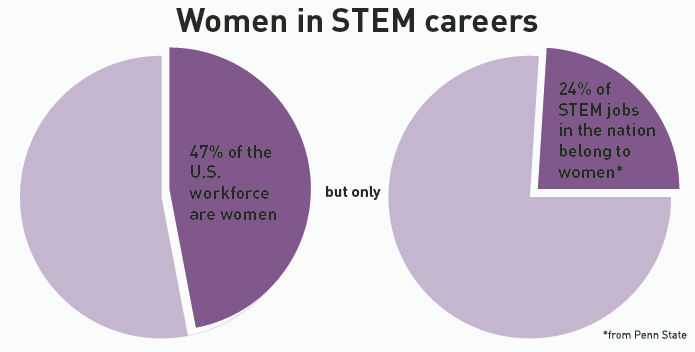Letter: Do not look at life through a single-issue lens
November 14, 2018
On Tuesday, author Peyton Spanbauer wrote an opinion titled “White Women voters are failing us.” In the opinion, the author attempts to persuade the white women voting base to shift their priorities when casting a ballot in future elections while using the 2018 midterms as a base of evidence.
Perhaps the better route for all of us to take is one where we stop taking cursory glances at voting demographics and proclaiming that the problem has been identified. Instead, we should all go deeper than voter demographics to seek a better truth to life than the one that is most obvious or politically convenient. I can assure readers that white women are not the problem, and should not be categorically condemned as such.
Author Spanbauer’s opinion, and the environment in which it is derived, is one likely shared by many students at this institution. This environment resides up high, removed from the vast intricacies of life that exist beyond the borders of our campus. Our institution affords us the ability to view each candidate as nothing more than single issues of race or gender. So the choice becomes easy to make, but it is not the choice we ought to make.
There is no doubt an importance to be found in voting for candidates who are decent people who act with respect to women and minorities. However, the author’s all-or-nothing stance on this single issue is telling of a person willing to address only one facet of American life.
I say this not to discount the heavy hand that race and gender play in the life of Americans but rather as a warning that more must be considered when seeking truth. Adopting a single-issue lens for life is tempting as it transforms what would be a difficult decision into an easier one. However, we cannot give in to this temptation as it is intellectually lazy, and we owe it to ourselves to be better than that.
Through the author’s own admission, great strides were made in creating a legislature more reflective of American diversity. However, this truly noteworthy progress was glossed over. Instead, author Spanbauer wishes to see America remade, its Republicans all swept away by a great tide. Only to have the landscape reformed by the ivory tower that is as out of touch with reality as the caricatures of Republicans the author constructs.
Perhaps it is time to come down the steps, to emerge from the echo chambers to find that many women choose to base their vote on more than their identity as a woman. Perhaps they base it on the sanctity of life, or their prizing of certain liberties over others, or a concern of governmental encroachment on every aspect of life. Perhaps people should be considered as so much more than their gender and racial identities.
I wish there were a world where the choice between candidates came down to such simple questions of morality as whether a candidate treated people with human decency or not. However, that world can only be glimpsed by those residing in their towers. And so my opinion here is said in the hopes that it offers something in the way of a breath of fresh air. If not for the author, then for a campus and a nation so hopelessly lost in their obsession with identity.















